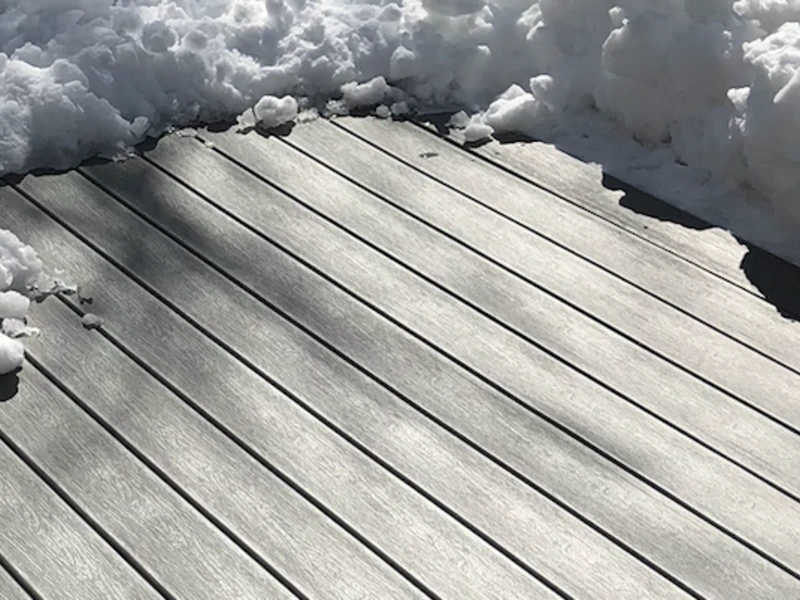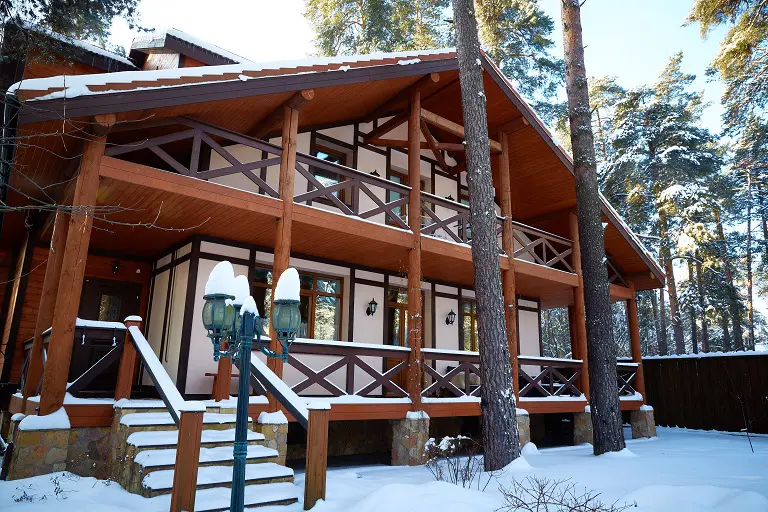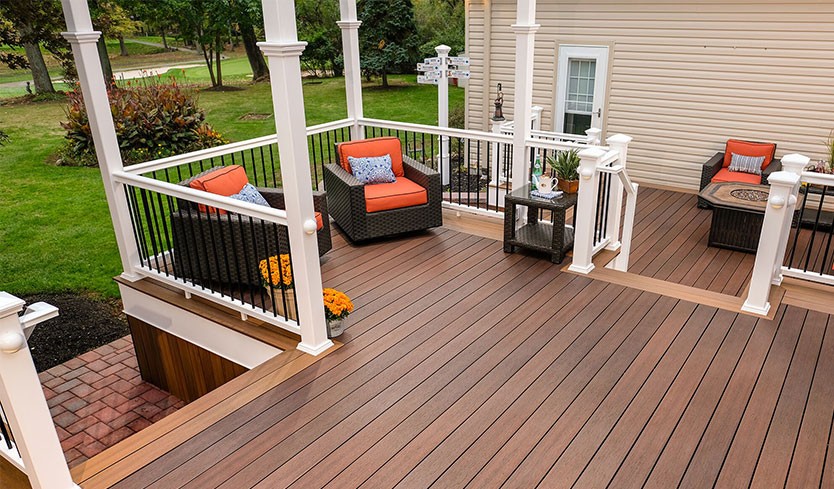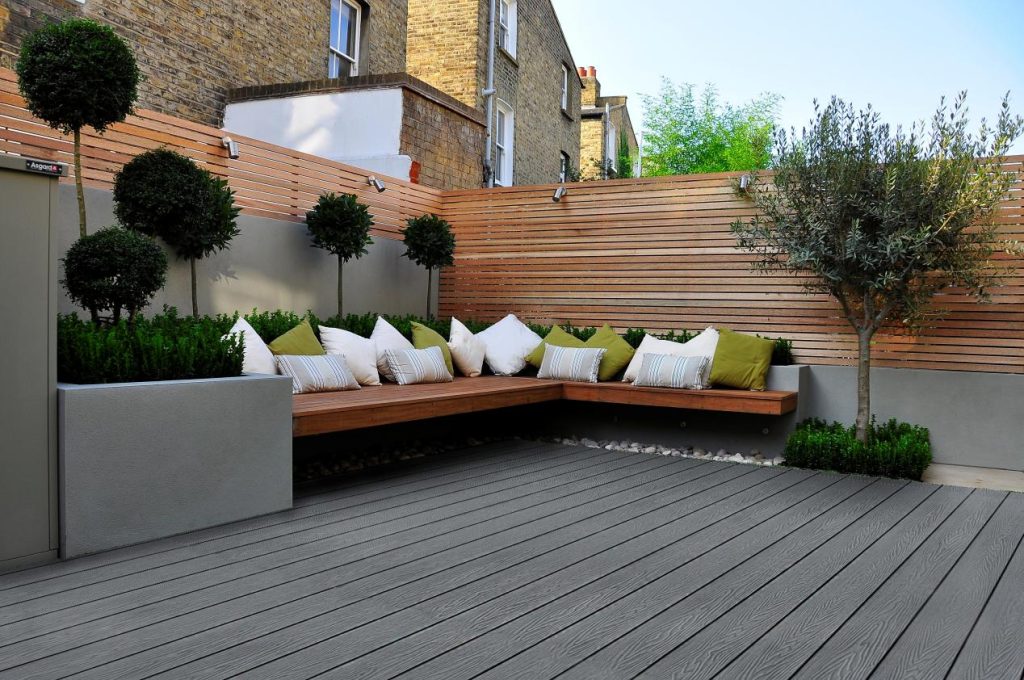Winter snow can turn your backyard haven into a slippery danger zone, especially if you use your deck for daily activities. You might wonder whether you can use ice melt for composite decking. Actually, choosing the right ice melt is crucial to ensure safety without compromising your composite deck’s integrity.
However, since ice melt isn’t a common daily necessity, many people are not familiar with it and may not understand the harm it can cause to their family, the environment, and their composite decking. Please note that this product must not be used without a detailed understanding. In this guide, we’ll explore the various kinds of ice melts and provide tips on maintaining a safe and pristine deck during the colder months.
How Ice Melt for Composite Decking Works
Ice melt products are essential for keeping your deck safe during blizzard weather, as they help prevent slips and falls. Before using any ice melt, it’s important to understand how they work. Essentially, these products generate heat and create a salty solution that melts snow, preventing ice from forming on your deck. For composite decks, it’s advisable to opt for gentler options like pellets or liquid solutions, as they are less abrasive compared to granules.
Understanding the basic principles of ice melt products ensures effective and safe usage, especially on composite decks. By choosing the right type of ice melt, such as pellets or liquid options, you can effectively melt snow and prevent ice buildup without causing damage to your deck surface.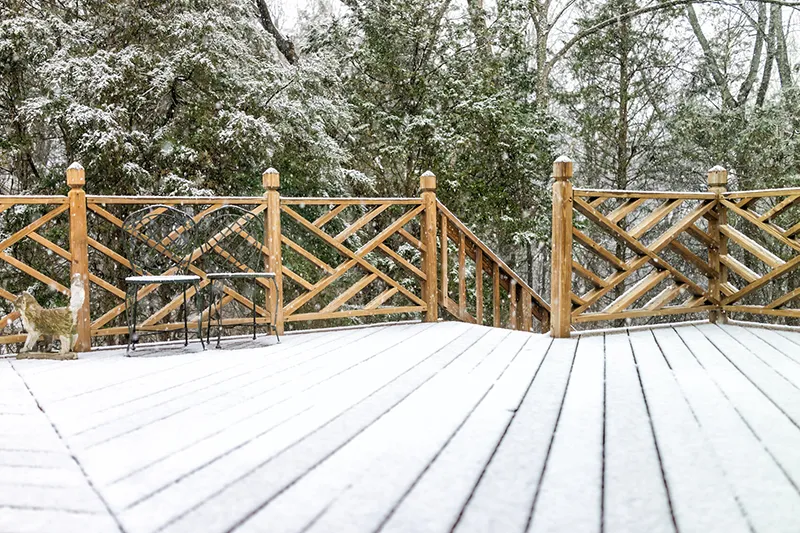
Various Components of Ice Melt for Composite Decking
Ice melts come in various chemical compositions, including calcium chloride, magnesium chloride, calcium magnesium chloride, and sodium chloride. Opt for products with fewer chemicals, ensuring safety for children, pets, and other outdoor materials. Look for products labeled “safe for composite decking,” “safe for flagstone,” and “will not kill grass.” If children or pets frequent your deck, choose a product safe for them as well.
1. Calcium Chloride
Features: Strong and effective
Pros: Calcium Chloride is the fastest melting agent for snow and ice on composite decks, working efficiently in temperatures as low as -32℃/-25℉.
Cons: However, it can cause skin burns and may be harmful to pets and plants. It’s important to keep pets away from treated surfaces and wear gloves during application.
2. Magnesium Chloride
Features: Less corrosive
Pros: Magnesium chloride-based melts are less corrosive than others and may be best in climates with temperatures of -20℃/-5℉ or higher.
Cons: However, these melts may cause damage to plants so be mindful where you are spreading the product.
3. Calcium Magnesium Chloride
Features: Safe and biodegradable
Pros: Calcium magnesium chloride is the safer choice. It is biodegradable and low-corrosive, which makes it safe to use around pets and plants.
Cons: Calcium Magnesium Chloride tends to be more expensive than some other ice melt products, which may impact its affordability for large-scale applications.
4. Sodium chloride
Features: Cost-Effective
Pros: Sodium chloride is one of the most affordable options for melting ice, making it a cost-effective solution for large areas or frequent applications.
Cons: Sodium chloride, can cause damage to concrete, wood and plants, and is toxic to animals.
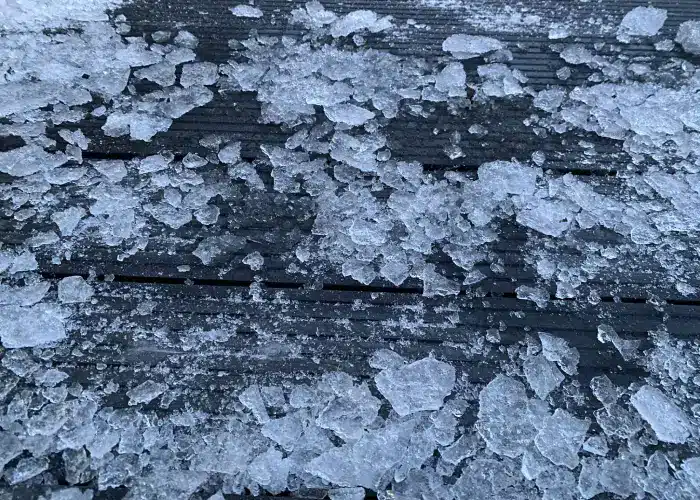
Things to Avoid
Ice melt with added colorant: Dyes may stain decking.
Sand: Causes surface damage.
Metal shovels and sharp-edge tools: Can harm even the most resilient decking.
Safest Ice Melt for Composite Decking
Generally speaking, calcium chloride melts are the most effective option for composite decks. They efficiently melt snow and ice without scratching the deck’s surface.
Cleaning Up Ice Melt Residue
At Hosung WPC, we recognize the importance of choosing the correct ice melt for your deck. If you’re unsure which type is best for composite decking in your home, don’t hesitate to click the message button to reach out to us for personalized expert guidance
Discover the Right Solution for Your Composite Deck with Free Samples
At Hosung WPC, we understand the importance of selecting the right ice melt for your deck. If you have any doubts about which type of ice melt is best for composite decking in your home, don’t hesitate to reach out to us for personalized expert guidance.
If you’re considering building a composite decking this spring, now is the opportune moment to request free samples and assess their efficacy in extreme cold. Click here to browse our decking options.
Explore our array of products and request free samples to guarantee the safety and aesthetics of your composite deck during winter. Contact us today to discover options and prioritize safety this winter.